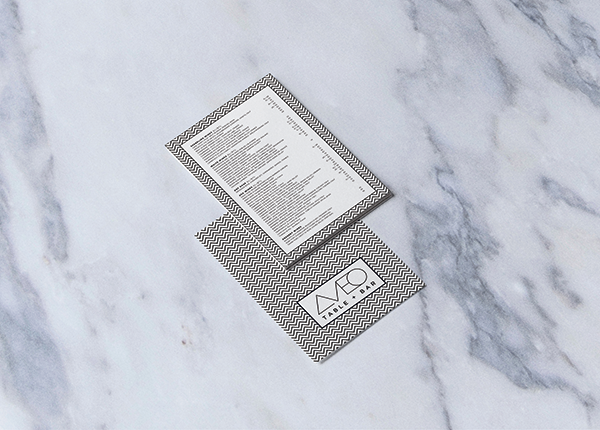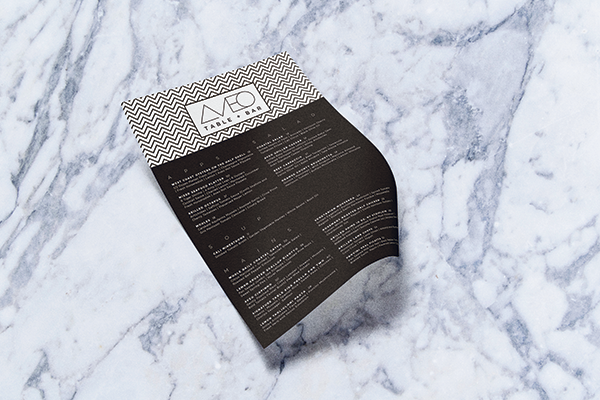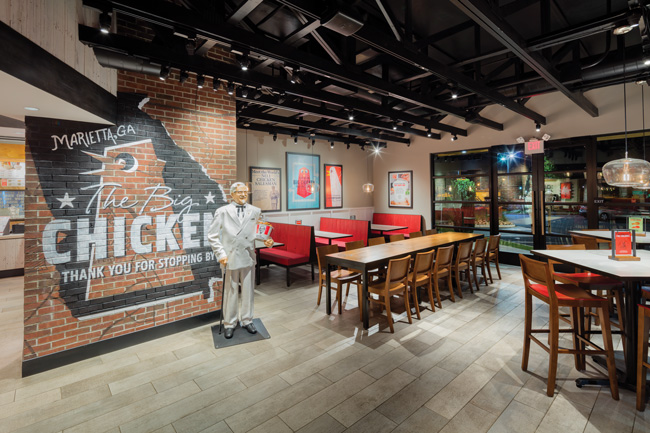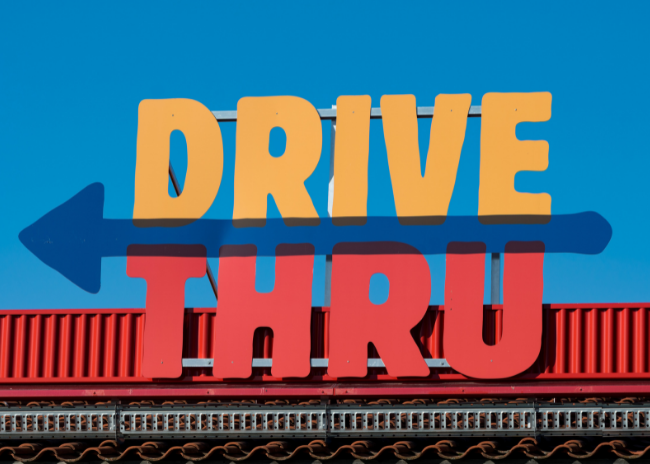As project manager and senior designer at Puccini Group, the global hospitality concept and design firm headquartered in San Francisco, Douglas Fu has designed and managed large-scale hotel and restaurant design projects from Southern California to Ras al-Khaimah. In addition to his nearly 20 years of experience designing hospitality interiors, Doug is a self-proclaimed foodie and the proud father of two amazing boys.
Experiential Graphics and Artwork
 Traditionally, artwork was thought of as something hung in a frame, but embracing artwork as part of the interior design is an exciting trend we’re seeing in restaurants — and even outside, in the form of signage or murals that pique the interest of guests and draw them inside to continue the experience. Large-scale art, hand-painted signs and wall decals that implement graphics are all gaining popularity. As a multidisciplinary design firm, we’re fortunate to have in-house graphic design capabilities, which we’ve made use of in recent projects and have even used as a focal point for interiors. At Columbus Tap, a new gastropub in the Fairmont Hotel in Chicago’s Millennium Park (see page 13 for more), our branding team created environmental graphics inspired by vintage beer advertisements.
Traditionally, artwork was thought of as something hung in a frame, but embracing artwork as part of the interior design is an exciting trend we’re seeing in restaurants — and even outside, in the form of signage or murals that pique the interest of guests and draw them inside to continue the experience. Large-scale art, hand-painted signs and wall decals that implement graphics are all gaining popularity. As a multidisciplinary design firm, we’re fortunate to have in-house graphic design capabilities, which we’ve made use of in recent projects and have even used as a focal point for interiors. At Columbus Tap, a new gastropub in the Fairmont Hotel in Chicago’s Millennium Park (see page 13 for more), our branding team created environmental graphics inspired by vintage beer advertisements.
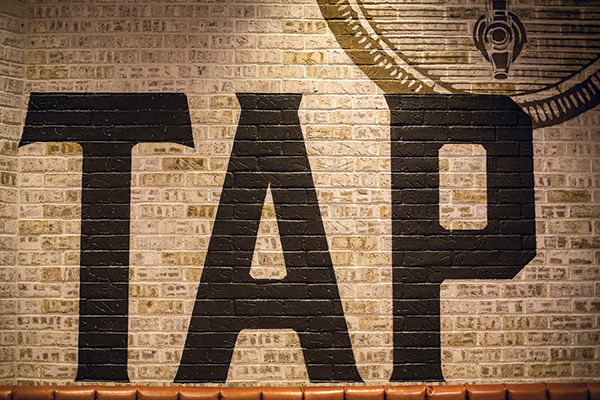 Hand-painted wall detail for Columbus Tap at the Fairmont Hotel in Chicago.Here, Doug shares his insights into the industry trends, innovative ideas and driving factors shaping hospitality design today.
Hand-painted wall detail for Columbus Tap at the Fairmont Hotel in Chicago.Here, Doug shares his insights into the industry trends, innovative ideas and driving factors shaping hospitality design today.
Be Nimble
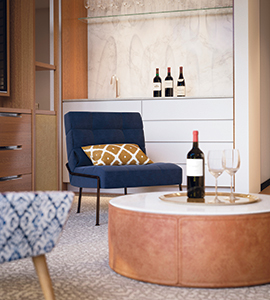 Rendering for a boutique hotel in Napa, Calif. Images courtesy of Puccini GroupIn this business, budgets, timelines, design preferences and stakeholders are often shifting. It’s essential to stay nimble — to be able to flex and adapt and to build buffers into your plans from the beginning — and keep guiding the project forward toward a successful completion. As a boutique design firm, the ability to ideate around innovative ways to best use resources comes in quite handy. We’re excited about new technologies that enable speed and agility; high-quality renderings can now be turned around overnight, and three-dimensional imaging is a new tool we’re excited to use more widely.
Rendering for a boutique hotel in Napa, Calif. Images courtesy of Puccini GroupIn this business, budgets, timelines, design preferences and stakeholders are often shifting. It’s essential to stay nimble — to be able to flex and adapt and to build buffers into your plans from the beginning — and keep guiding the project forward toward a successful completion. As a boutique design firm, the ability to ideate around innovative ways to best use resources comes in quite handy. We’re excited about new technologies that enable speed and agility; high-quality renderings can now be turned around overnight, and three-dimensional imaging is a new tool we’re excited to use more widely.
Lighting Innovation
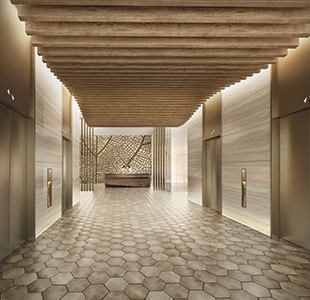 A lobby concept design with unusual lighting.Back in 2003, my former firm designed a back-lit bar. In addition to the astronomical cost of the lighting, we ran into another roadblock in our design: The amount of heat generated by the lighting would warm the liquor. We had to let go of the idea. Today, innovations in LED lighting enable us to design almost unlimited features. My wife is a lighting designer, so I keep up to date on the very latest lighting technologies. With proper lighting, our design of a space comes to life. It is the combination of design and lighting that creates the atmosphere in which our experiences begin to form our memories of a place.
A lobby concept design with unusual lighting.Back in 2003, my former firm designed a back-lit bar. In addition to the astronomical cost of the lighting, we ran into another roadblock in our design: The amount of heat generated by the lighting would warm the liquor. We had to let go of the idea. Today, innovations in LED lighting enable us to design almost unlimited features. My wife is a lighting designer, so I keep up to date on the very latest lighting technologies. With proper lighting, our design of a space comes to life. It is the combination of design and lighting that creates the atmosphere in which our experiences begin to form our memories of a place.
Destination Dining
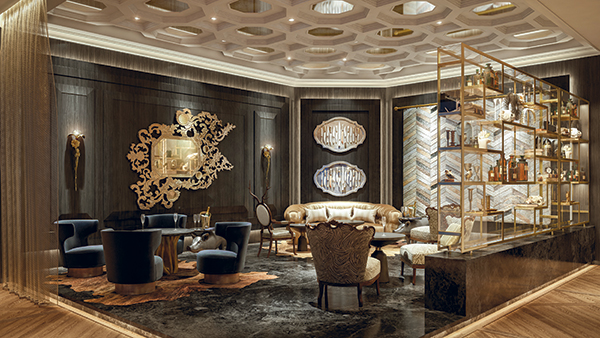 Lounge at the Sheraton Metechi Palace Hotel in Tbilisi, Georgia.It’s not a new notion for 2016, but we’re seeing more and more foodie travelers committed to going the distance for an exceptional experience. Fueled by the media — the wonderful “Chef’s Table” documentary series on Netflix, for example — and impelled by the images their friends share on social media, diners with highly evolved palates are seeking meals worthy of their culinary bucket list. As a designer, this is liberating — we’re encouraged to make bigger, bolder statements with our designs to meet the customer’s growing desire for a truly memorable experience.
Lounge at the Sheraton Metechi Palace Hotel in Tbilisi, Georgia.It’s not a new notion for 2016, but we’re seeing more and more foodie travelers committed to going the distance for an exceptional experience. Fueled by the media — the wonderful “Chef’s Table” documentary series on Netflix, for example — and impelled by the images their friends share on social media, diners with highly evolved palates are seeking meals worthy of their culinary bucket list. As a designer, this is liberating — we’re encouraged to make bigger, bolder statements with our designs to meet the customer’s growing desire for a truly memorable experience.
Interdisciplinary Approach
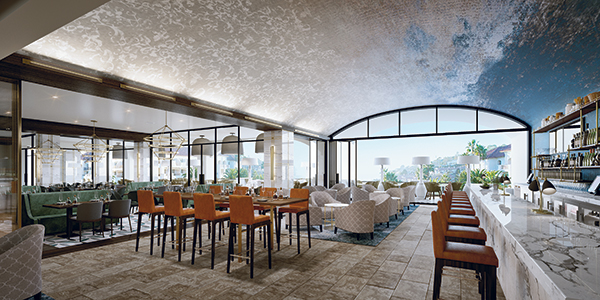 Rendering and menu concepts for Aveo Table + Bar, St. Regis Monarch Beach in Dana Point, Calif.Working collaboratively is crucial today. Successful design combines concept development, interior design, branding and marketing. This ensures every aspect of the guest experience gets carefully considered and crafted to create synergy. The result is a cohesive, concept-driven dining experience.
Rendering and menu concepts for Aveo Table + Bar, St. Regis Monarch Beach in Dana Point, Calif.Working collaboratively is crucial today. Successful design combines concept development, interior design, branding and marketing. This ensures every aspect of the guest experience gets carefully considered and crafted to create synergy. The result is a cohesive, concept-driven dining experience.
